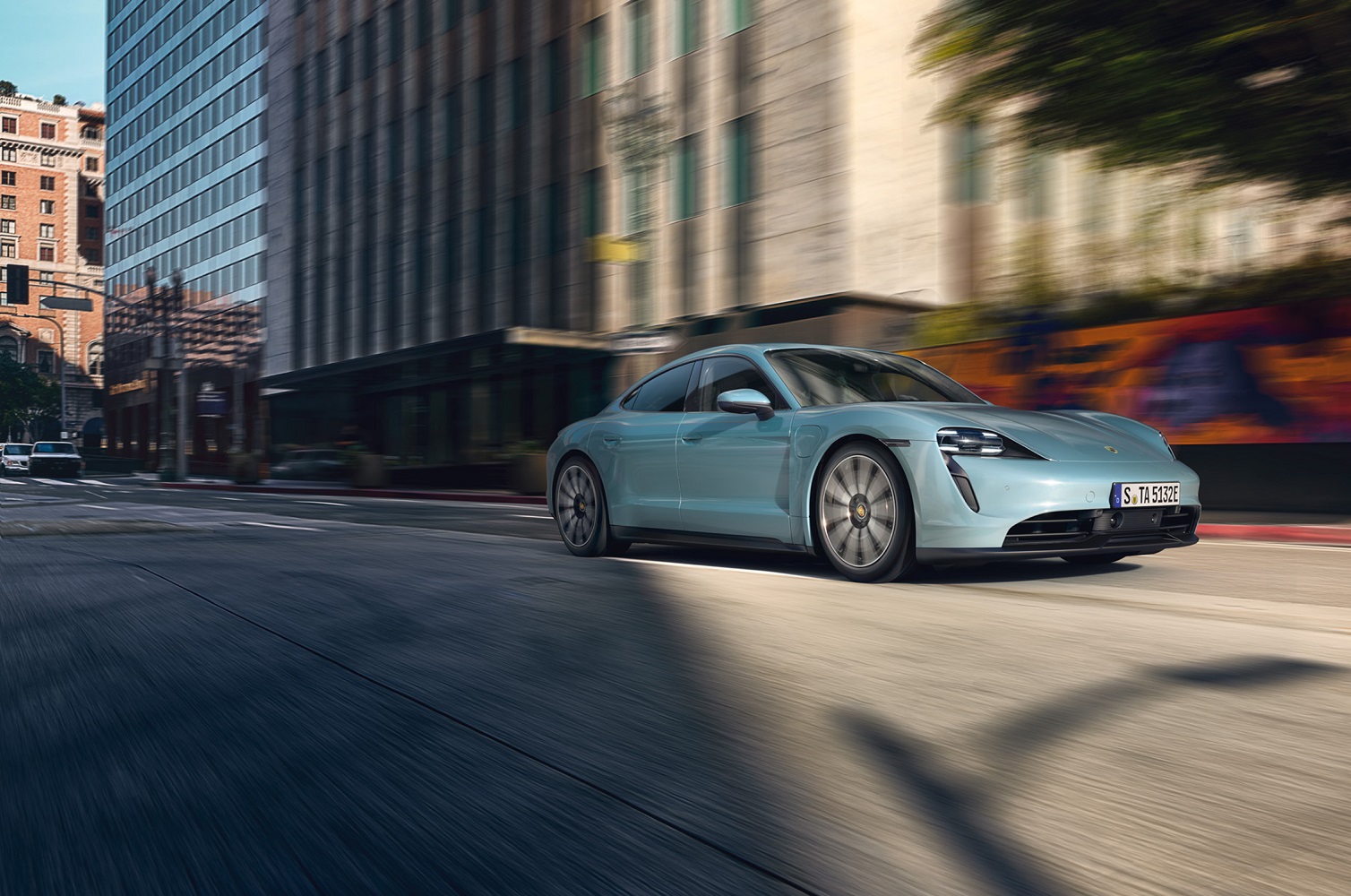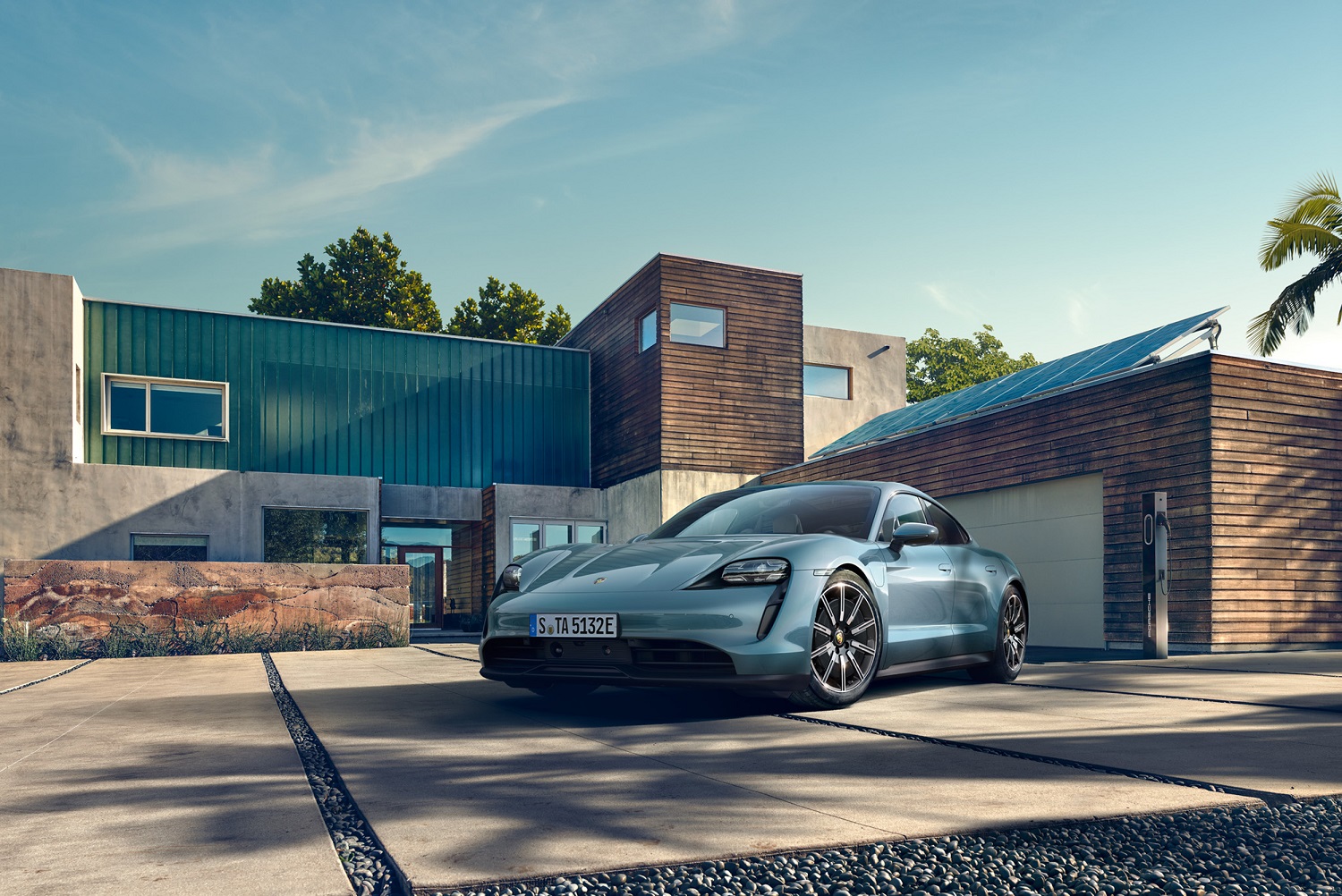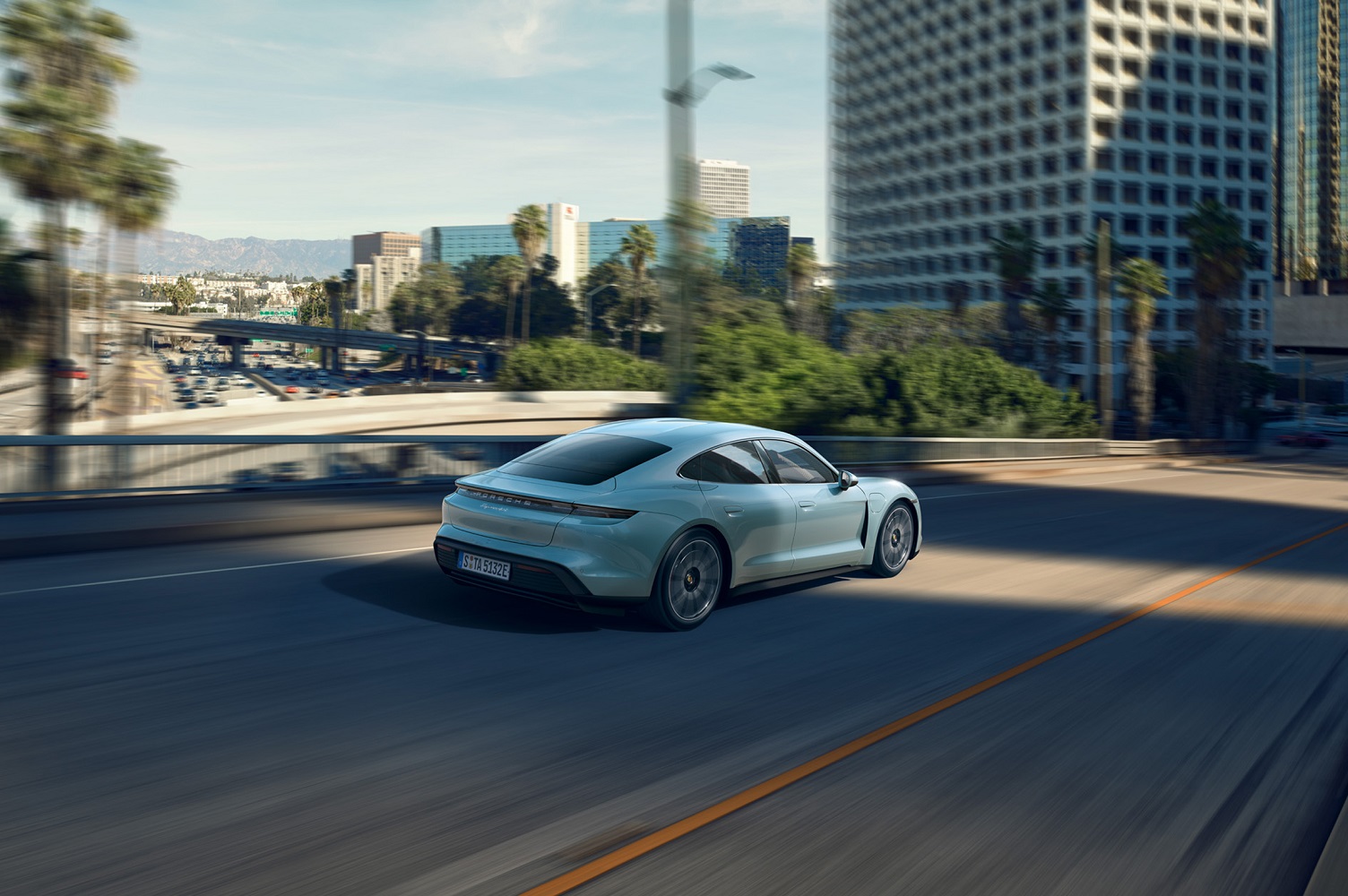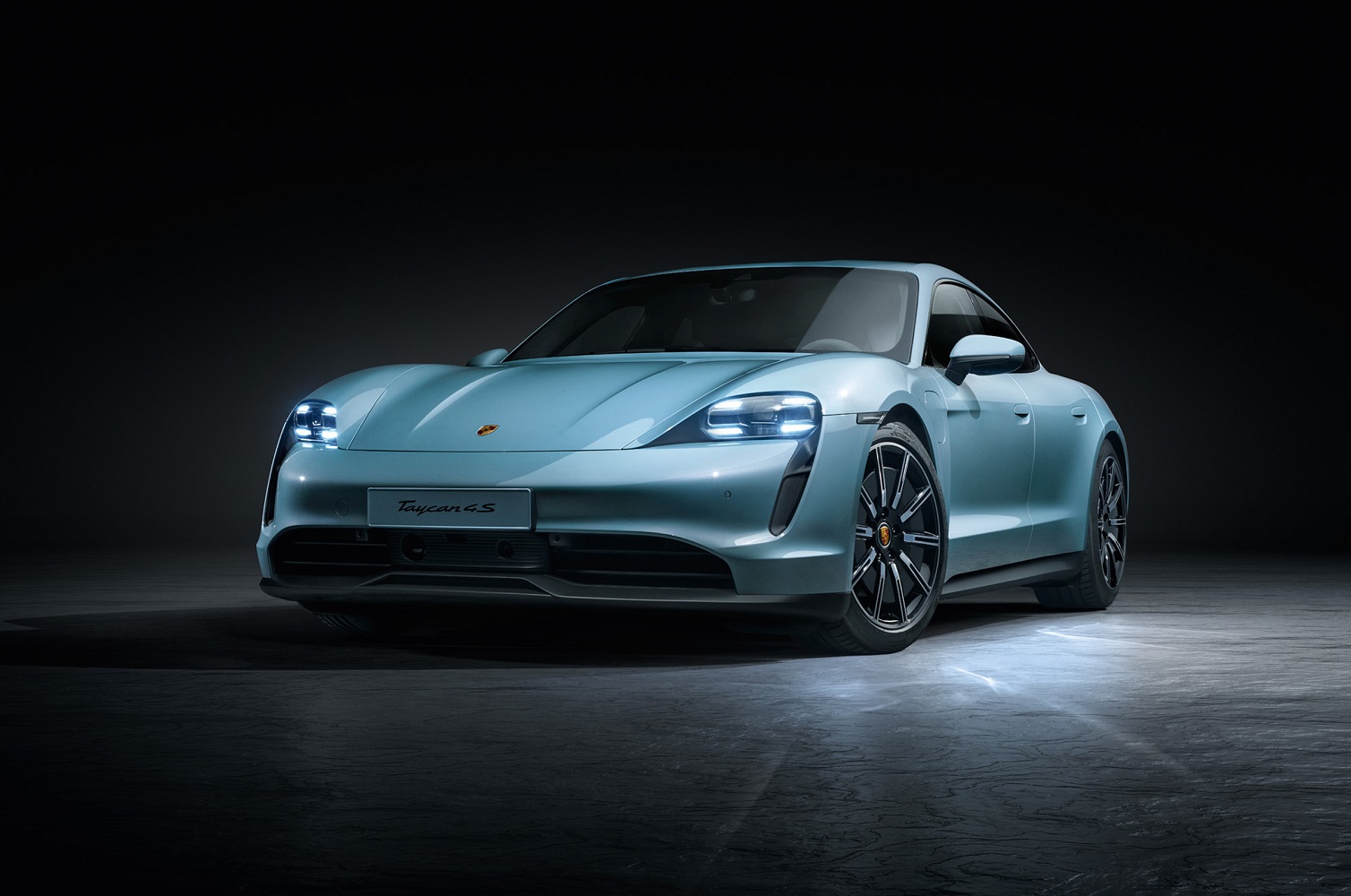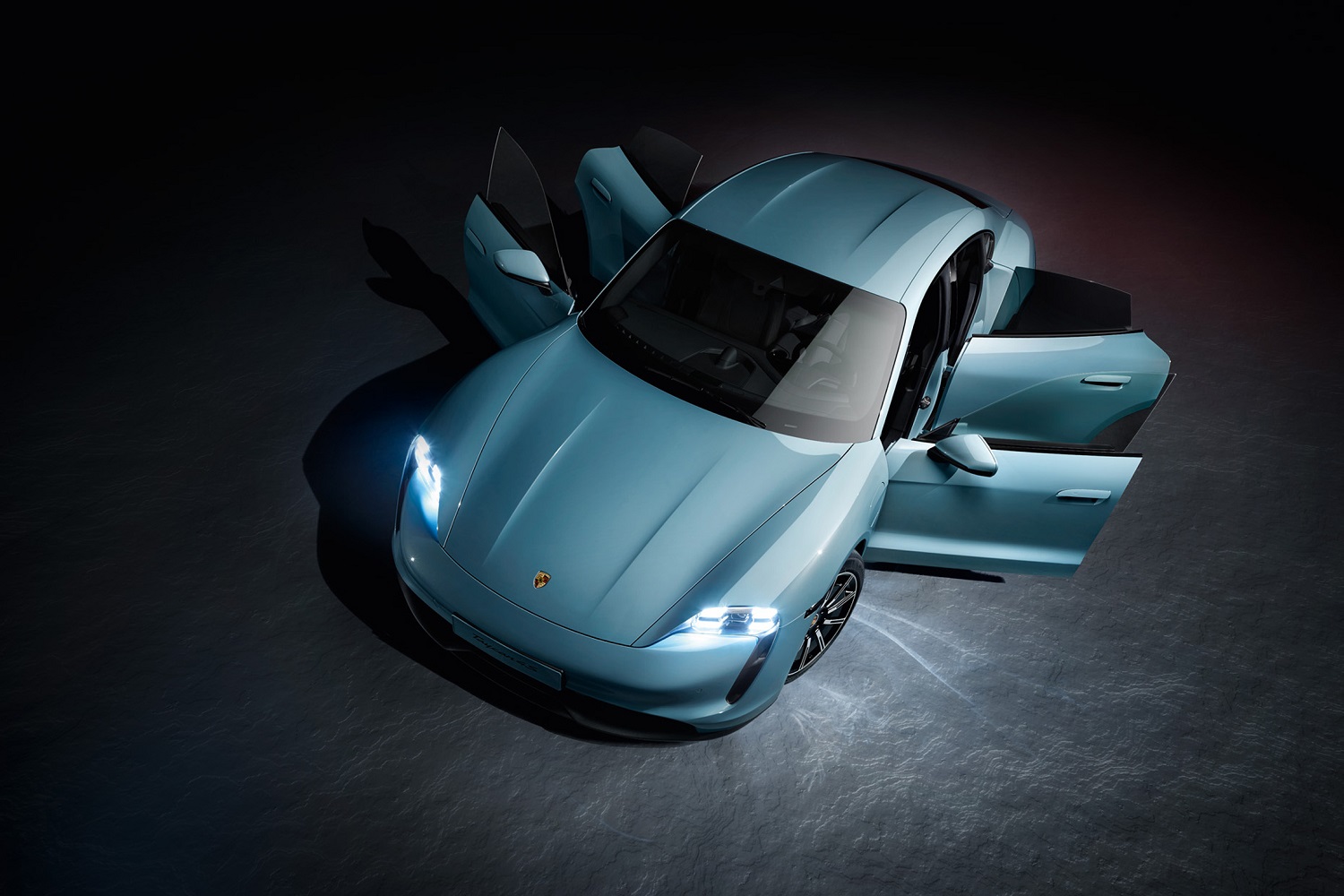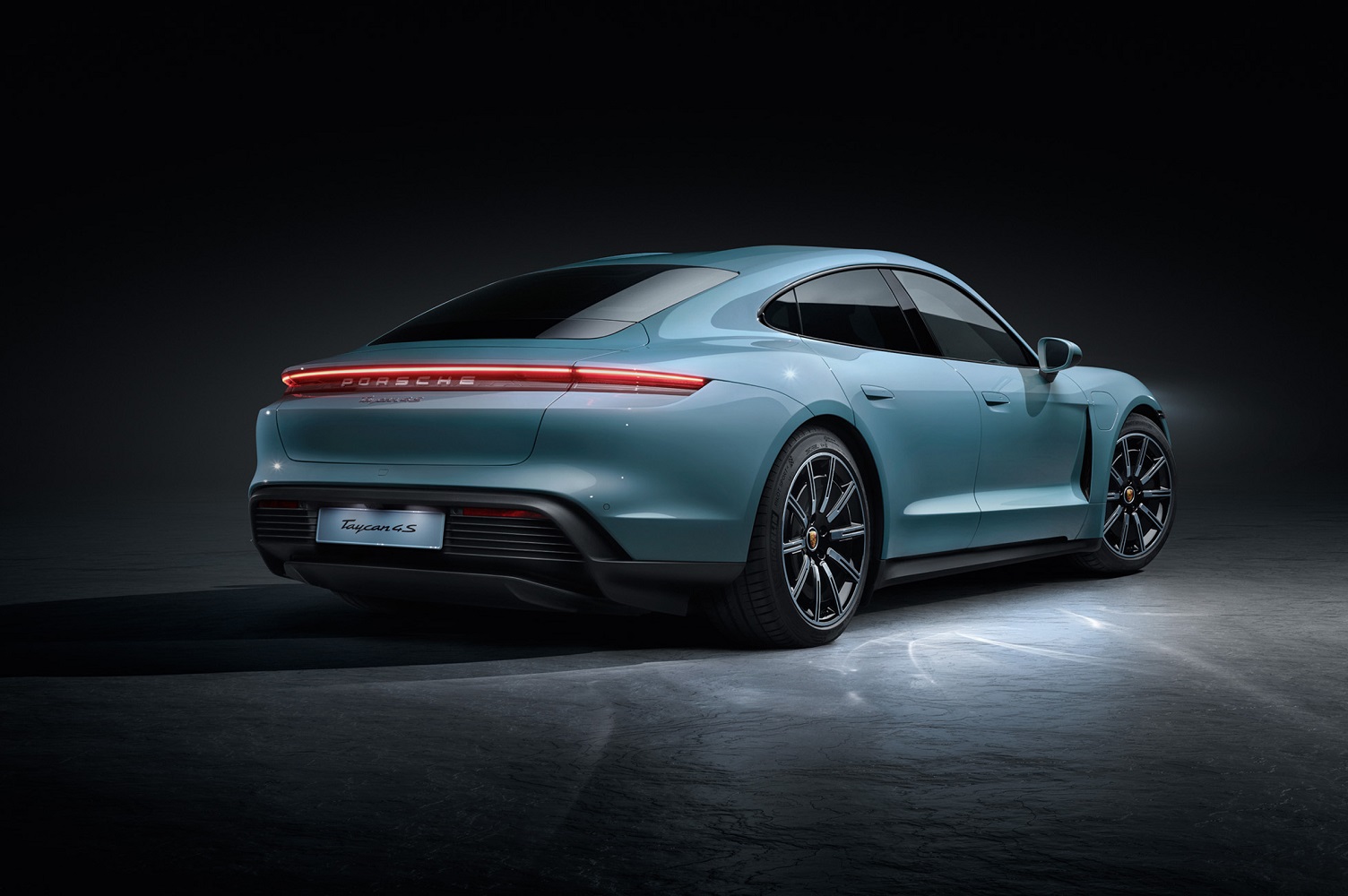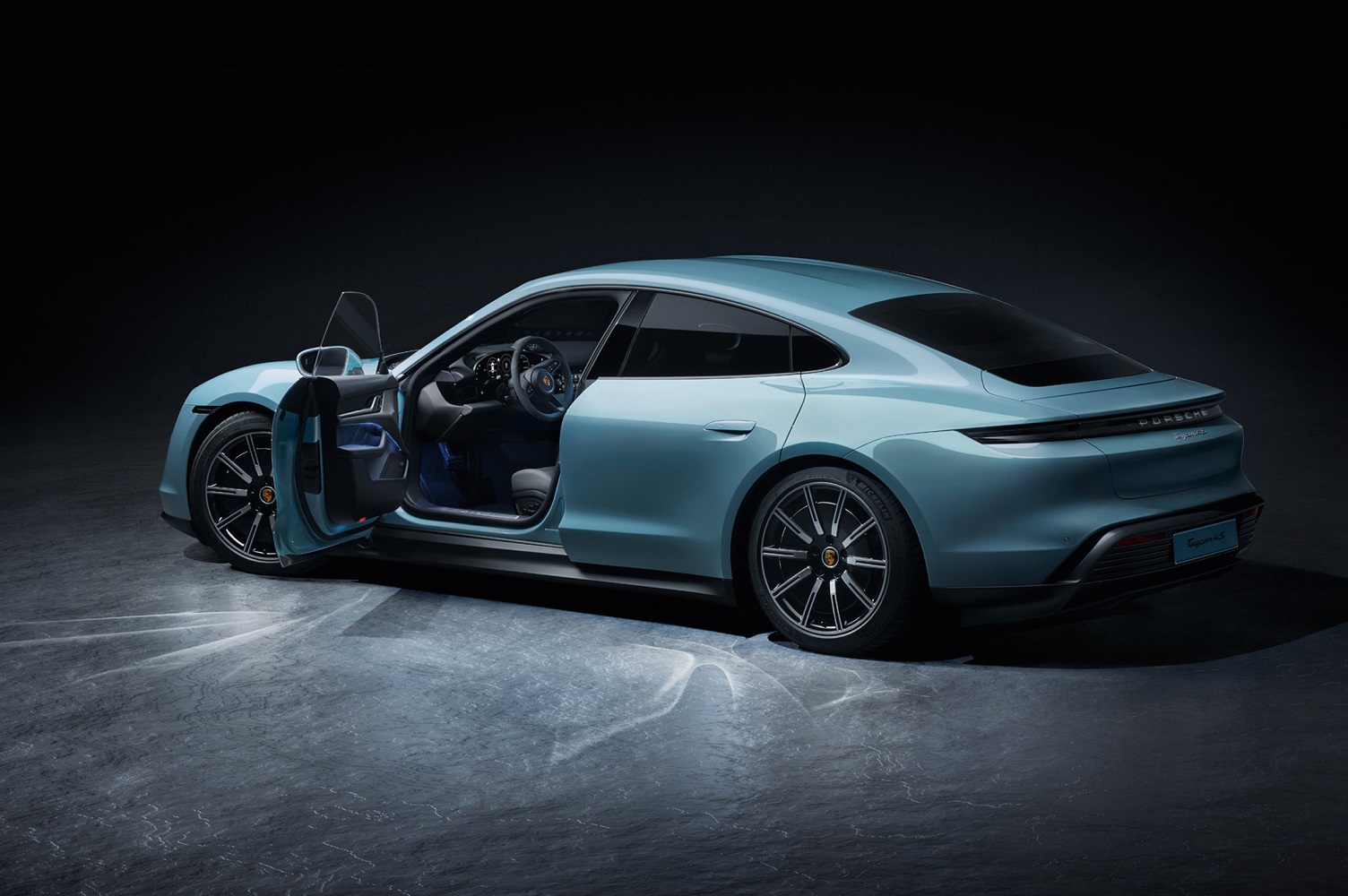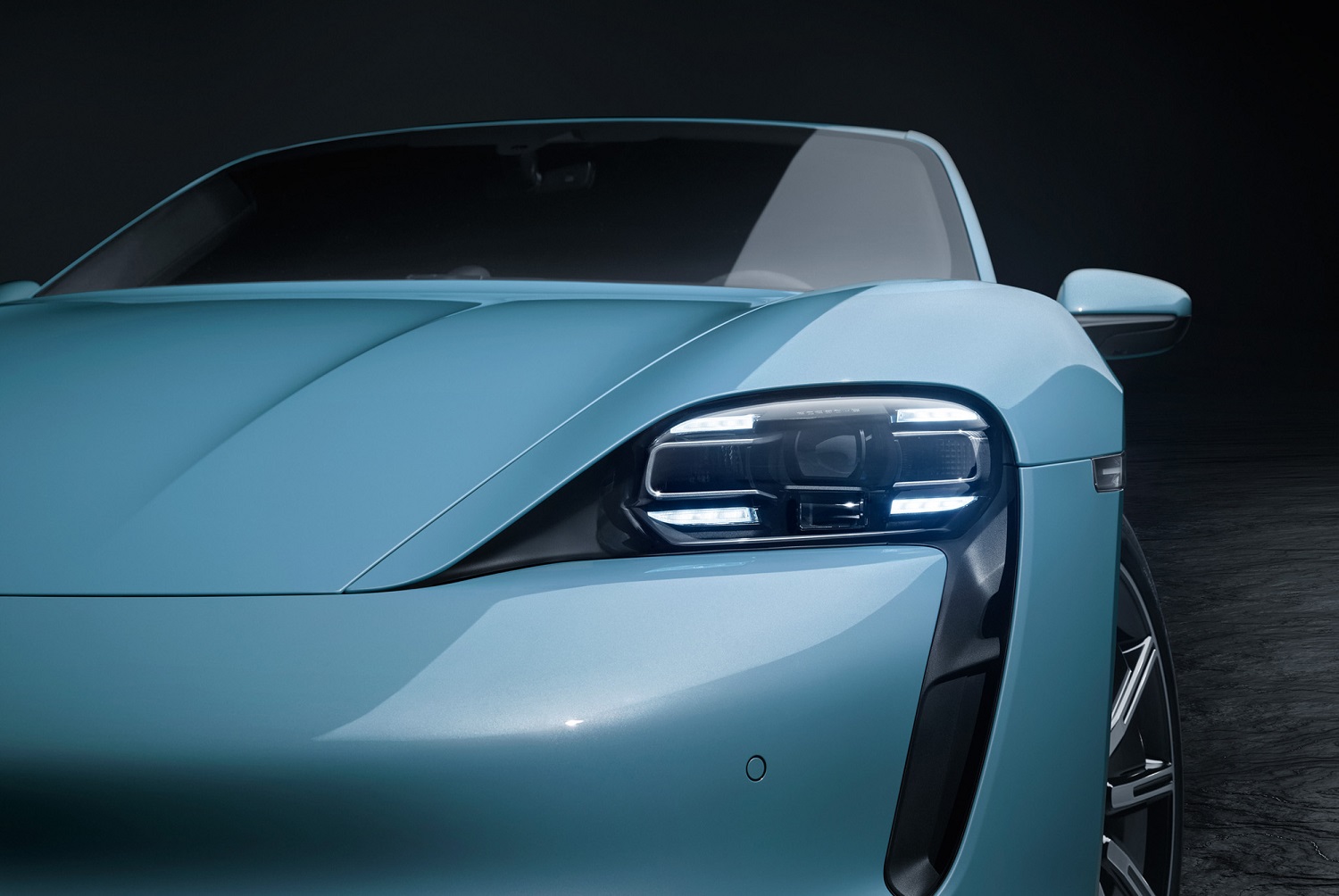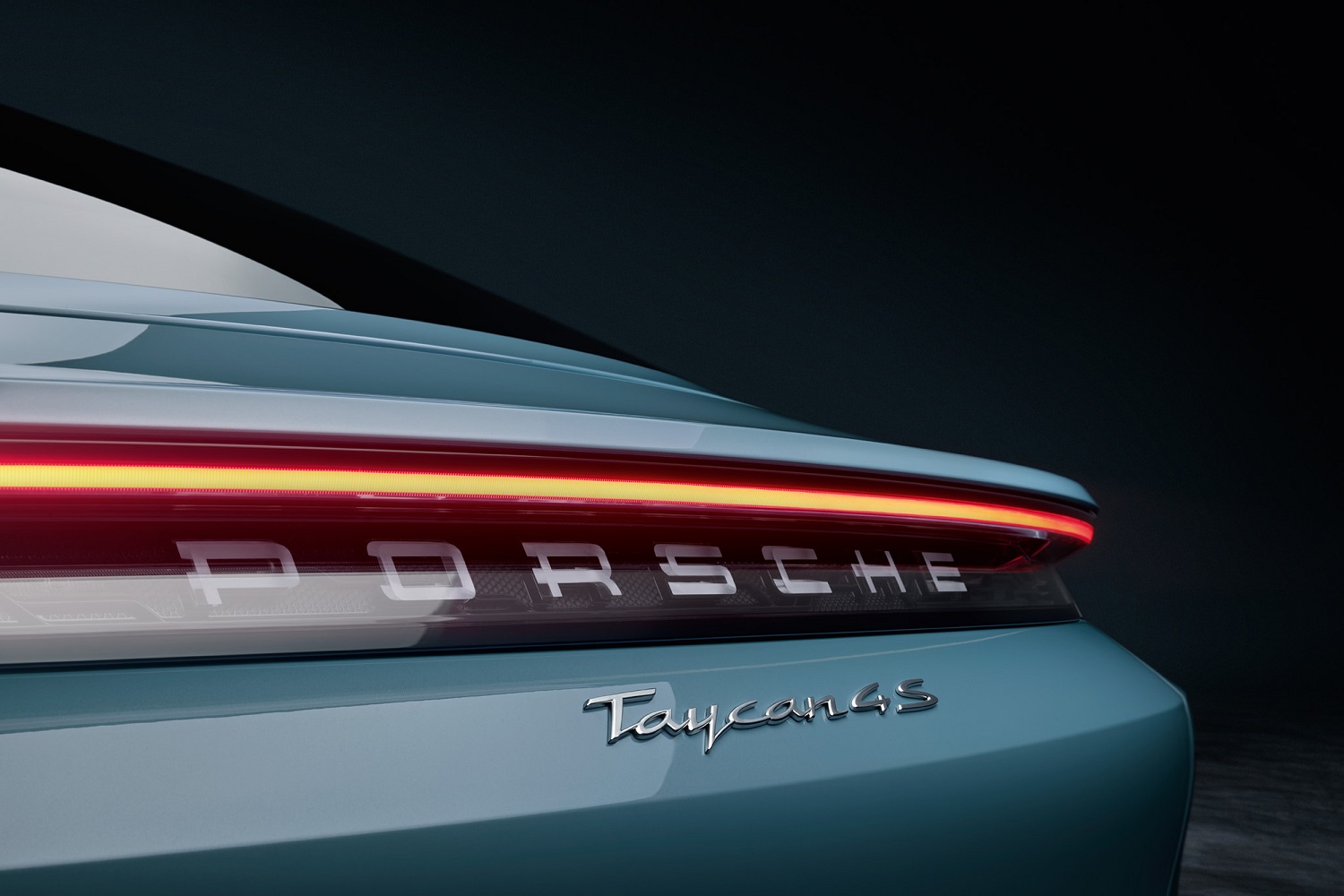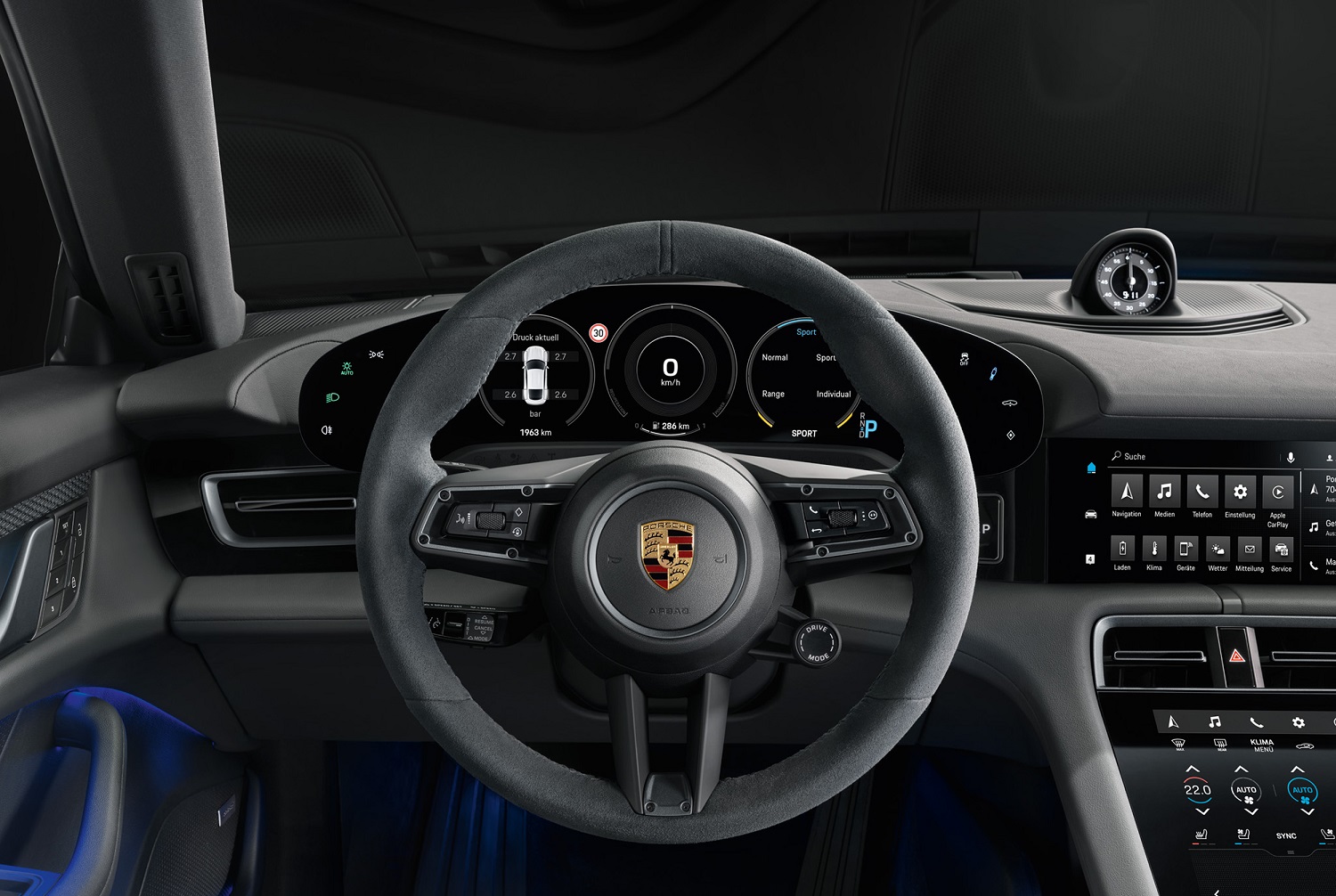Porsche launched the Taycan, its first series-produced electric car, by revealing the flagship Turbo and Turbo S variants. It just unveiled a cheaper, less powerful version named 4S that’s available with two different powertrain configurations.
The Taycan 4S gives us a clearer idea of how Porsche plans to market its future electric cars. The powertrains are primarily differentiated by the size of their battery packs. The regular, entry-level 4S is built on top of a 79.2-kilowatt-hour lithium-ion battery pack that zaps a pair of electric motors (one on each axle) with 429 horsepower and 472 pound-feet of torque, though the horsepower output briefly increases to 522 when the driver turns on the launch control feature. Reaching 60 mph from a stop takes 3.8 seconds, and top speed is limited at 155 mph.
Motorists can pay extra for what Porsche calls a Performance Battery Plus whose capacity checks in at 93.4-kilowatt-hour. It’s the exact same unit found in the aforementioned Turbo and Turbo S variants. The two electric motors produce 482 hp (or, briefly, 563 with launch control) and 479 lb-ft. of torque. Zero to 60 mph also takes 3.8 seconds, and the top speed is also limited to 155 mph. The range is likely the main reason to select the battery pack, but we don’t know if it’s worth it yet.
Porsche hasn’t announced how far either 4S can drive on a single charge because the model hasn’t been tested by the Environmental Protection Agency (EPA) yet. The company nonetheless pointed out its 800-volt charging technology replenishes a battery from 5% to 80% in 22.5 minutes — “under ideal circumstances,” the firm stressed.
We don’t expect you to tell the 4S apart from the Turbo or Turbo S models by simply looking at it. The visual modifications are minor, and largely limited to a redesigned lower front bumper, reshaped side skirts, and a black diffuser embedded into the rear bumper. The 19-inch alloy wheels specific to the 4S add a finishing touch to the design.
The 2020 Porsche Taycan 4S is on sale now with a base price of $103,800, though motorists who want the bigger pack will need to pay $110,380. Neither figure includes a $1,350 destination charge. In comparison, the flagship Turbo S will set you back by $185,000, while Porsche priced the Turbo at $150,900. Deliveries will begin in the spring of 2020.
